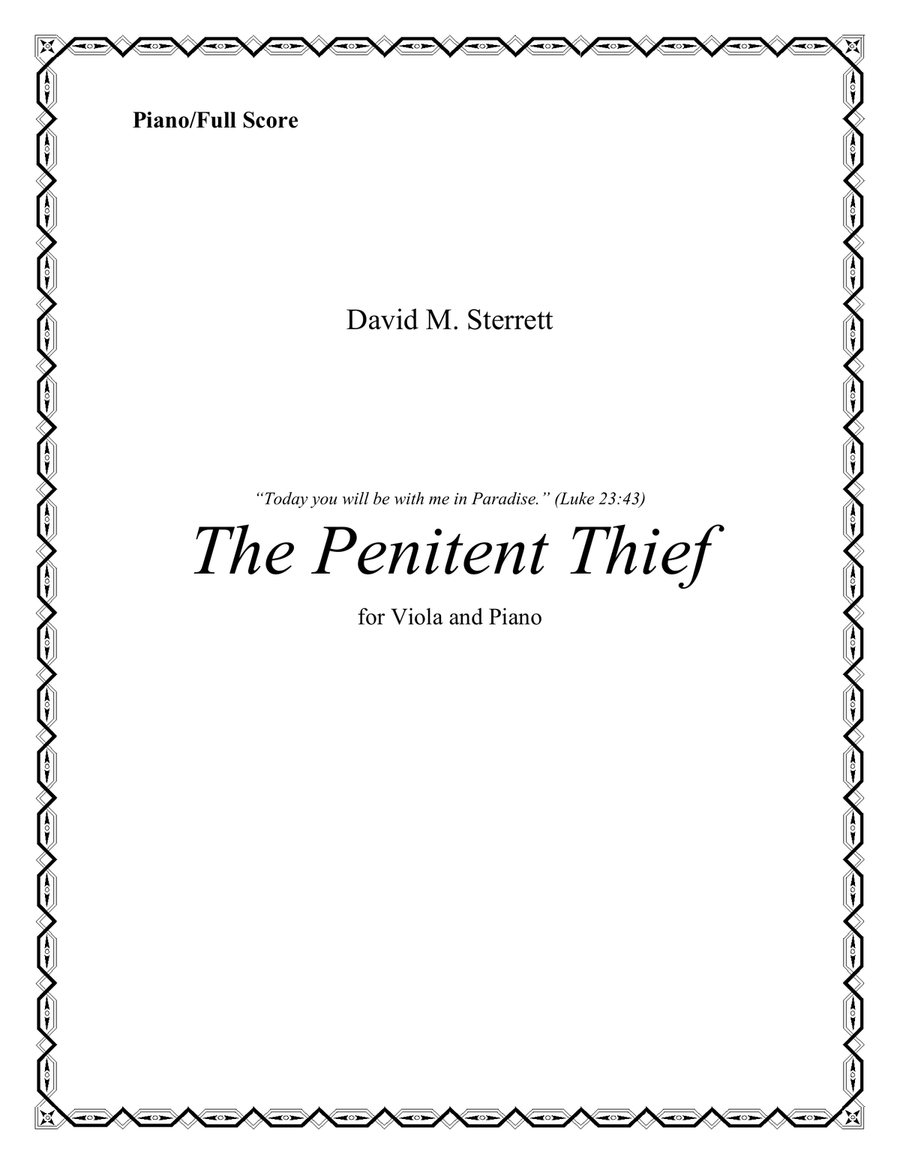Piano,Viola - Level 5 - Digital Download SKU: A0.1039822 Composed by David M. Sterrett. Classical,Contemporary,Sacred. Score and part. 49 pages. David Sterrett Music #644666. Published by David Sterrett Music (A0.1039822). This piece depicts the story of the Penitent Thief, one of the two other men who hung on a cross beside Jesus, as told in the Bible: One of the thieves who were hanged by Jesus was hurling abuse at him, saying, 'Are you not the Christ? Save yourself and us!' But the other answered, and rebuking him, said, 'Do you not even fear God, since you are under the same sentence of condemnation? We indeed are suffering justly, for we are receiving what we deserve for our deeds; but this man has done nothing wrong.' And he was saying, 'Jesus, remember me when you come into your kingdom!' And Jesus said to him, 'Truly I say to you, today you will be with me in Paradise.' (Luke 23:39-43) I initially set out to portray the scene from a narrative perspective. As I began composing and felt the story resonate more and more with my own spiritual experiences, I decided to shift the focus onto what I imagined the emotional and spiritual experiences of the Penitent Thief were during this brief but transformative interaction with Jesus right before death. While the passage does not describe his internal experience, I imagine that Jesusâ extension of kindness and mercy, along with the promise âToday you will be with me in Paradise,â profoundly impacted him. In composing this, I hoped to convey that transformative encounter. Ultimately, The Penitent Thief depicts an experience familiar to many Christians: that of a lost and broken soul discovering Jesus offers the truth and salvation they long for. To capture the element of dialog, I envisioned the Viola as the Penitent Thief and the Piano as Jesus. Each has a distinct theme/motif. On the cross, the Penitent Thief is consumed by shame, sorrow, and fear of death. His demeanor shifts between moments of quiet contemplation and visceral emotional outbursts. Facing imminent death, he yearns for redemption and truth. He looks at Jesus hanging next to him, blameless and holy. He feels admiration and praise and is overcome by penitence and humility. He calls out, half in desperation, half in worship: âJesus, remember me when you come into your Kingdomâ¦â Jesus, moved by his penitence and belief, responds with kindness and mercy, extending salvation: Today you will be with me in Paradise.â The Penitent Thief imagines Paradise and hopes for this to hold true. His hope becomes briefly overshadowed by lingering doubt and fear. Silence falls. Then, as the hour of death arrives, the man reaches out again and clings to Jesusâ promise, this time with more desperation. His soul suddenly becomes filled with joy, finding the fulfillment of longing, bound with Christ, and knowing that he will soon be at rest in Paradise. At peace, the man gazes upward, gives his final sputtering breath, and his soul departs this world.
